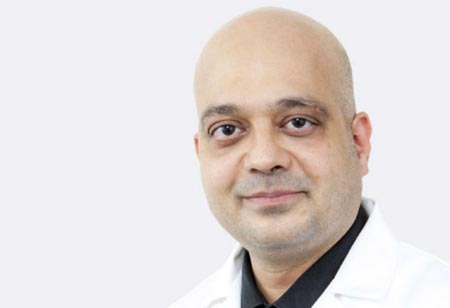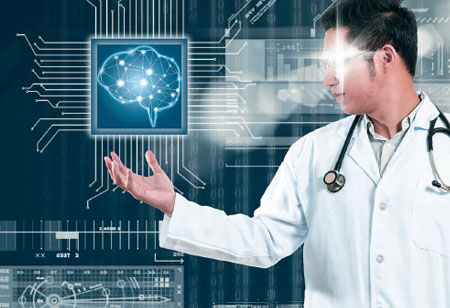
Need Of Intuitive Artificial Intelligence In Medical Equipments


Dr Amit Saraf, Doctor, Jupiter Hospital, 0
The term "Artificial intelligence (AI)" was coined in the year 1956.Since then extensive research was undertaken, initially focusing on problem solving and symbolic methods, and then gradually venturing into the domain of enabling machines to mimic basic human reasoning! An example of this is the Personalised Assistant that Learns (PAL) program of DARPA that gave us Siri! And then followed Cortana and Alexa. If you are a movie buff then as per Hollywood cinema and Sci-Fi novels, AI is nothing but human like robots taking over the entire world! But if you are a realist, then, it is developing machines that can think and work like humans and make our stressful lives a tad bit easier! Right from the smartphones to the self-driving cars AI is slowly but steadily working its way in all the sectors including health care!
What will AI do in healthcare? Now that's something to ponder upon! The healthcare industry is ripe for some major changes. From chronic diseases and cancer to radiology and risk assessment, there are nearly endless opportunities to leverage technology to deploy more precise, efficient, and impactful interventions at exactly the right moment in a patient’s care.
Almost all consumers now have access to devices with sensors that can collect valuable data about their health. From smartphones with step trackers to wearables that can track a heartbeat around the clock, a growing proportion of health related data is generated on the go. Collecting and analyzing this data and supplementing it with patient provided information through apps and other home monitoring devices, can offer a unique perspective into individual and population health.
Computers are used for communication on a daily basis. What if we create a direct interface between technology and human mind without the need for keyboard, mouse and monitor? Neurological diseases and trauma to the
nervous system can take away the ability to speak, move and interact. Imagine a technology that could decode the neuronal signals associated with the intended movement and replicate it, allowing them to communicate just like anyone else! Brain computer interfaces (BCIs) backed by artificial intelligence could drastically improve the life quality of patients suffering from stroke, ALS, locked in syndrome and spinal cord injuries.
In the medical environment, smart devices are critical for monitoring patients in the ICU and elsewhere. Using artificial intelligence to enhance the ability to identify deterioration, suggest that sepsis is taking hold, or sense the development of complications can significantly improve outcomes!
In a country like India, the doctor patient ratio is 1:1456,or in simpler terms, grossly distorted! In such a scenario most of the times there is shortage of trained health-care providers, including ultrasound technicians and radiologists especially in remote areas. What if we end up developing a simple application that could interpret the Radiological images and give a detailed interpretation along with the possible causes, helping the doctors in PHC in making a quick diagnosis!

These are just few examples! With extensive research and dedicated efforts in AI we could power a new generation of tools and systems not only to help the clinician but also to usher in a new era of clinical quality and exciting breakthroughs in patient care!
AI has its own set of advantages, but we must not forget that ultimately it is a machine that is going to be working on the basis of algorithms! There is always a chance of error, so at least for the initial stages the results need to be taken with a pinch of salt and we must remember that it is there to help the clinician, not to replace them!
Almost all consumers now have access to devices with sensors that can collect valuable data about their health
In the medical environment, smart devices are critical for monitoring patients in the ICU and elsewhere. Using artificial intelligence to enhance the ability to identify deterioration, suggest that sepsis is taking hold, or sense the development of complications can significantly improve outcomes!
In a country like India, the doctor patient ratio is 1:1456,or in simpler terms, grossly distorted! In such a scenario most of the times there is shortage of trained health-care providers, including ultrasound technicians and radiologists especially in remote areas. What if we end up developing a simple application that could interpret the Radiological images and give a detailed interpretation along with the possible causes, helping the doctors in PHC in making a quick diagnosis!

These are just few examples! With extensive research and dedicated efforts in AI we could power a new generation of tools and systems not only to help the clinician but also to usher in a new era of clinical quality and exciting breakthroughs in patient care!
AI has its own set of advantages, but we must not forget that ultimately it is a machine that is going to be working on the basis of algorithms! There is always a chance of error, so at least for the initial stages the results need to be taken with a pinch of salt and we must remember that it is there to help the clinician, not to replace them!